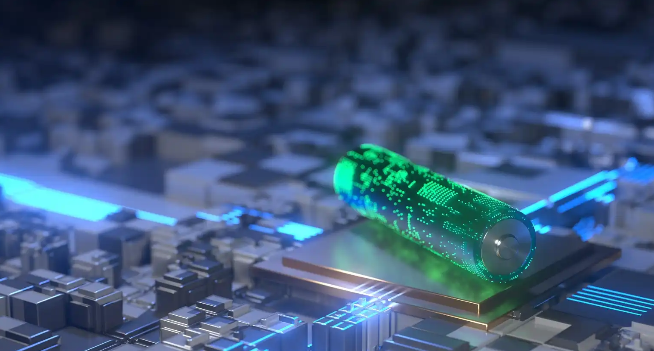Electric Scooter Battery: Powering Sustainable Transportation
In recent years, electric scooters have gained popularity as a sustainable mode of transportation. With concerns over pollution and the need to reduce carbon emissions, these eco-friendly vehicles have become a preferred choice for commuting in urban areas. At the heart of an electric scooter lies its battery, which plays a crucial role in powering this sustainable transportation option.
Electric scooter batteries come in various types, including lead-acid, nickel-metal hydride (NiMH), and lithium-ion. Among these, lithium-ion batteries have emerged as the preferred choice due to their high energy density, longer lifespan, and lower weight. These batteries are known for their ability to store and provide energy efficiently, enabling riders to travel longer distances on a single charge.
One of the key advantages of using electric scooters is their positive impact on the environment. As compared to traditional gasoline-powered scooters, electric scooters produce zero emissions during operation. This not only helps in reducing air pollution but also mitigates noise pollution, creating a quieter and healthier urban environment.
Additionally, electric scooter batteries can be recharged using electricity from renewable sources, further enhancing their eco-friendly credentials. Renewable energy, such as solar or wind power, can be harnessed to charge these batteries, eliminating the reliance on fossil fuels. This shift towards clean energy sources contributes significantly to reducing greenhouse gas emissions, thereby combating climate change.
Apart from being environmentally friendly, electric scooters offer economic benefits as well. The cost of electricity required to charge the battery is considerably lower than the expense of gasoline for traditional scooters. Moreover, the maintenance and servicing costs for electric scooters are generally lower, as they have fewer moving parts and do not require oil changes. This cost-effectiveness makes electric scooters an attractive option for budget-conscious individuals.
Furthermore, electric scooters provide convenience and flexibility to users. With the increasing number of charging stations in cities, riders can easily find a spot to recharge their scooter batteries. Some public places, such as shopping malls or office complexes, even offer charging facilities, making it more convenient for users to charge their vehicles while they go about their daily activities. This accessibility to charging points ensures that electric scooter riders are never left stranded with a depleted battery.
In terms of performance, electric scooters are known for their quiet and smooth operation. The absence of a combustion engine eliminates the noise and vibrations associated with traditional scooters. This silent operation not only enhances the riding experience but also contributes to a peaceful and tranquil urban environment.

Despite these advantages, there are a few challenges associated with electric scooter batteries. The limited range offered by some batteries can be a deterrent for riders who require longer commutes. However, advancements in battery technology are continually improving the range, making electric scooters a viable option for a wider range of users.
In conclusion, electric scooter batteries are powering sustainable transportation by providing an eco-friendly, cost-effective, and convenient mode of travel. With zero emissions and the ability to recharge using renewable energy sources, electric scooters play a vital role in reducing air and noise pollution, as well as combating climate change. As technology continues to evolve, electric scooter batteries are expected to become even more efficient, making sustainable transportation accessible to all. So, hop on your electric scooter, charge up the battery, and enjoy a cleaner and greener commute.
-
 When it comes to powering our modern day devices and appliances, batteries have become an integral part of our lives. From powering our phones and laptops to supporting renewable energy systems, batteries play a crucial role in our daily lives. However, choosing the right battery can be a daunting task, especially when it comes to high-capacity batteries like 100Ah LiFePO4...Read more
When it comes to powering our modern day devices and appliances, batteries have become an integral part of our lives. From powering our phones and laptops to supporting renewable energy systems, batteries play a crucial role in our daily lives. However, choosing the right battery can be a daunting task, especially when it comes to high-capacity batteries like 100Ah LiFePO4...Read more -
 As technology continues to advance, people are looking for more efficient ways to power their devices. One of the latest innovations in battery technology is the 48V LiFePO4 battery. This type of battery offers several advantages over traditional lead-acid batteries, including better performance, longer lifespan, and faster charging times. LiFePO4 stands for lithium iron phosphate, which is the material...Read more
As technology continues to advance, people are looking for more efficient ways to power their devices. One of the latest innovations in battery technology is the 48V LiFePO4 battery. This type of battery offers several advantages over traditional lead-acid batteries, including better performance, longer lifespan, and faster charging times. LiFePO4 stands for lithium iron phosphate, which is the material...Read more -
 Are you tired of constantly replacing batteries in your devices? Do you want a reliable and long-lasting power source? Look no further than a 12V LiFePO4 battery. LiFePO4 stands for Lithium Iron Phosphate, which is a type of rechargeable battery that is becoming increasingly popular due to its high energy density, long lifespan, and safety features. Unlike traditional lead-acid...Read more
Are you tired of constantly replacing batteries in your devices? Do you want a reliable and long-lasting power source? Look no further than a 12V LiFePO4 battery. LiFePO4 stands for Lithium Iron Phosphate, which is a type of rechargeable battery that is becoming increasingly popular due to its high energy density, long lifespan, and safety features. Unlike traditional lead-acid...Read more -
 In today's fast-developing technological era, lithium batteries, as a leader in the field of energy storage, are leading the wave of global energy transition and green development. In order to help you better understand lithium batteries, this article will thoroughly explore their working principle, application field, technological progress, and future development trends to provide you with strong support for your...Read more
In today's fast-developing technological era, lithium batteries, as a leader in the field of energy storage, are leading the wave of global energy transition and green development. In order to help you better understand lithium batteries, this article will thoroughly explore their working principle, application field, technological progress, and future development trends to provide you with strong support for your...Read more -
 Introduction: Lithium-ion batteries, specifically Lithium Iron Phosphate (LiFePO4) batteries, have gained significant attention in recent years due to their high energy density, longer lifespan, and improved safety features compared to conventional battery technologies. This article focuses on the advancements made in enhancing the performance and extending the lifespan of 100Ah LiFePO4 batteries. 1. Enhanced Performance: 1.1 Cathode Material Optimization:...Read more
Introduction: Lithium-ion batteries, specifically Lithium Iron Phosphate (LiFePO4) batteries, have gained significant attention in recent years due to their high energy density, longer lifespan, and improved safety features compared to conventional battery technologies. This article focuses on the advancements made in enhancing the performance and extending the lifespan of 100Ah LiFePO4 batteries. 1. Enhanced Performance: 1.1 Cathode Material Optimization:...Read more -
 Lithium iron phosphate (LiFePO4) batteries have been gaining popularity in recent years as a more efficient and environmentally friendly alternative to traditional lead-acid batteries. In this article, we will explore the benefits and applications of LiFePO4 battery cells. Benefits of LiFePO4 Battery Cells 1. High Energy Density: LiFePO4 batteries have a high energy density, which means that they...Read more
Lithium iron phosphate (LiFePO4) batteries have been gaining popularity in recent years as a more efficient and environmentally friendly alternative to traditional lead-acid batteries. In this article, we will explore the benefits and applications of LiFePO4 battery cells. Benefits of LiFePO4 Battery Cells 1. High Energy Density: LiFePO4 batteries have a high energy density, which means that they...Read more -
 In recent years, the demand for mobile power solutions has grown exponentially, driven by the increasing popularity of camping and outdoor activities. Traditional power sources, such as generators and lead-acid batteries, have proven to be cumbersome and inefficient. However, a revolutionary solution has emerged - the lithium camper battery. With its advanced technology and numerous benefits, it is clear that...Read more
In recent years, the demand for mobile power solutions has grown exponentially, driven by the increasing popularity of camping and outdoor activities. Traditional power sources, such as generators and lead-acid batteries, have proven to be cumbersome and inefficient. However, a revolutionary solution has emerged - the lithium camper battery. With its advanced technology and numerous benefits, it is clear that...Read more

